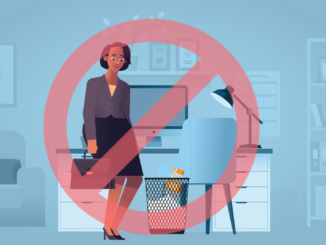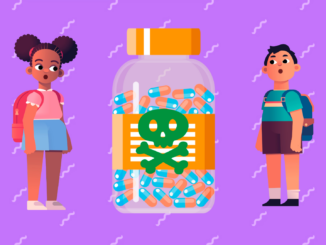
Sonoma County has been a forerunner in drug take-back programs
by Allen Pierleoni
California leads the nation in addressing issues that are vital to the public health and safety, and the environment. One crucial piece is the California Statewide Drug Take-Back Program, funded by the California Department of Health Care Services and administered by the California Product Stewardship Council.
The program targets the opioid crisis and the mishandling of other controlled and over-the-counter drugs. At its heart is a statewide network of safe disposal drug take-back bins, placed in pharmacies, hospitals with pharmacies, and law-enforcement agencies for public use.
“There’s a lot of support for our programs and definitely a need for more bins.”
Lisa Steinman, Program Planning and Evaluation Analyst, Sonoma County Department of Health Services
Residents of counties across the state can anonymously deposit unwanted medications into the bins, rather than endanger the environment and possibly lives by stockpiling them at home, flushing them down the toilet, or throwing them in the trash. The discarded drugs are disposed of in accordance with local and state regulations.
In one way or another, thousands of people touch this chain of events, including Lisa Steinman, program planning and evaluation analyst for the Sonoma County Department of Health Services in Santa Rosa.
Steinman has worked on Sonoma County’s Safe Medicine Disposal Program (SMDP) since its inception in 2007. It provides county residents “with safe and convenient methods for disposal of unwanted medications in an effort to help prevent overdoses and to protect the environment,” she says. To date, it has collected nearly 140,000 pounds of medications.
“The CPSC has been with us throughout SMDP’s implementation,” Steinman says. “Together with all of our partners, we’ve created a really robust program that gets a lot of buy-in through outreach and educational programs.”
Currently, the county offers a combination of 25 take-back bins and mail-back envelope distribution sites. The mail-back model allows people to place unwanted medications in prepaid envelopes and mail them to participating vendors for disposal.
SMDP’s collaborative partnership includes environmentally invested groups such as Zero Waste Sonoma and the Russian River Watershed Association (RRWA).
The project is “a high-priority” for RRWA’s board of directors in particular, as “it’s comprised of elected officials from all the cities in the county,” says Andy Rodgers, RRWA executive director. “They know their constituents want to have a safe, convenient way to dispose of their unwanted medications.”
“There’s a lot of support for our programs and definitely a need for more bins,” Steinman says.
To find a bin near you, go to medtakebackcalifornia.org.
Read more stories about med bins in California’s North Coast.
Brought to you by the California Drug Take-Back Program and the California Product Stewardship Council.
Recent facebook posts from California Product Stewardship Council

The California Product Stewardship Council (CPSC) is a powerful network of local governments, non-government organizations, businesses, and individuals supporting policies and projects where producers share in the responsibility for managing problem products at their end of life.
CPSC is California’s thought leader and expert on Product Stewardship and the Extended Producer Responsibility (EPR) movement.
EPR enjoys the support of more than 26 million Californians. That’s nearly 70% of the state's population! Nearly 150 resolutions have been passed by California local jurisdictions and organizations supporting a more sustainable and toxic free environment through product stewardship. CPSC works closely with companies who have redesigned products for reuse as well as those who have established pilot or permanent collection programs with some sharing of costs with others in the product chain.
California Product Stewardship Council



